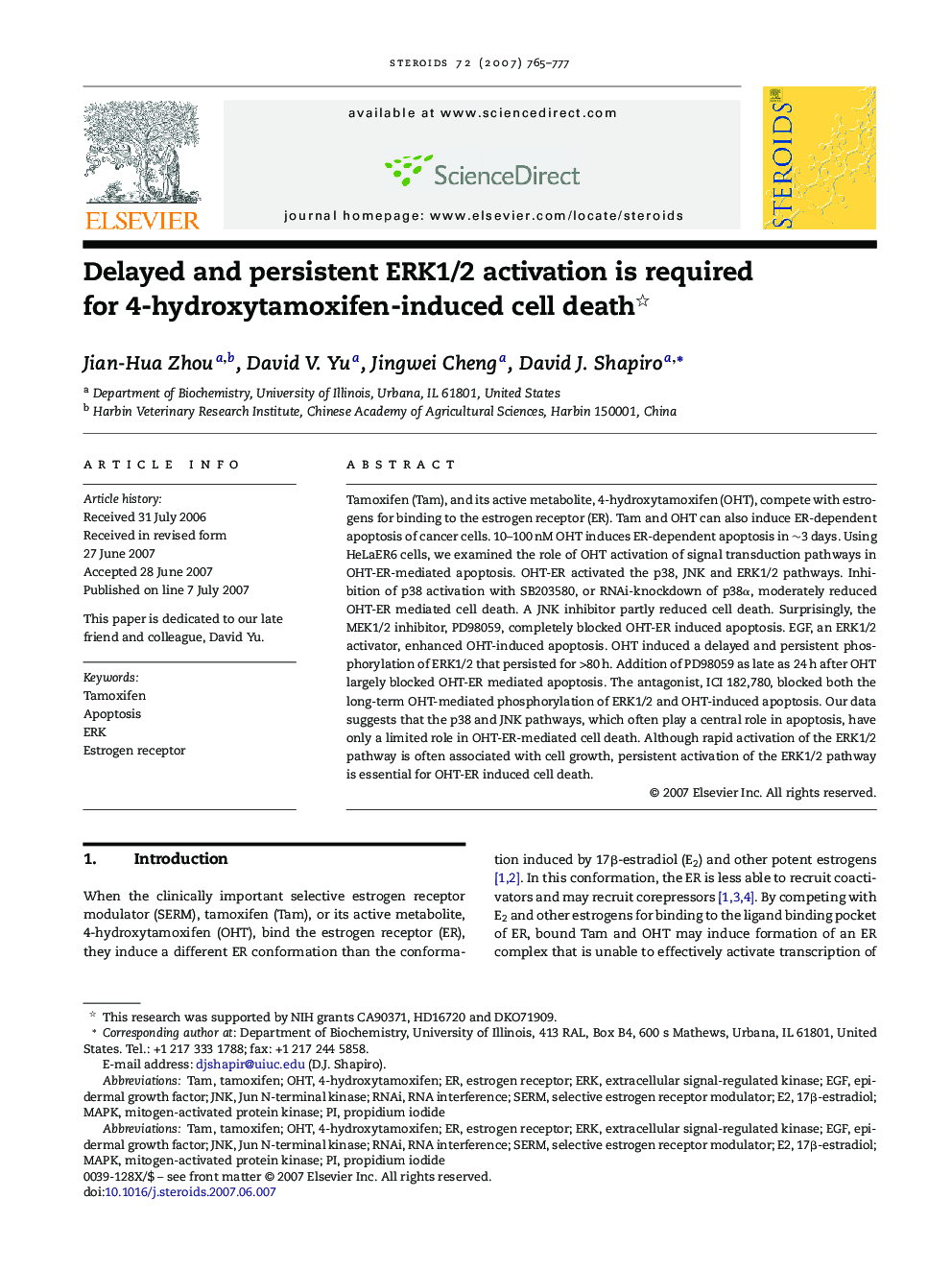| کد مقاله | کد نشریه | سال انتشار | مقاله انگلیسی | نسخه تمام متن |
|---|---|---|---|---|
| 2028965 | 1542741 | 2007 | 13 صفحه PDF | دانلود رایگان |

Tamoxifen (Tam), and its active metabolite, 4-hydroxytamoxifen (OHT), compete with estrogens for binding to the estrogen receptor (ER). Tam and OHT can also induce ER-dependent apoptosis of cancer cells. 10–100 nM OHT induces ER-dependent apoptosis in ∼3 days. Using HeLaER6 cells, we examined the role of OHT activation of signal transduction pathways in OHT-ER-mediated apoptosis. OHT-ER activated the p38, JNK and ERK1/2 pathways. Inhibition of p38 activation with SB203580, or RNAi-knockdown of p38α, moderately reduced OHT-ER mediated cell death. A JNK inhibitor partly reduced cell death. Surprisingly, the MEK1/2 inhibitor, PD98059, completely blocked OHT-ER induced apoptosis. EGF, an ERK1/2 activator, enhanced OHT-induced apoptosis. OHT induced a delayed and persistent phosphorylation of ERK1/2 that persisted for >80 h. Addition of PD98059 as late as 24 h after OHT largely blocked OHT-ER mediated apoptosis. The antagonist, ICI 182,780, blocked both the long-term OHT-mediated phosphorylation of ERK1/2 and OHT-induced apoptosis. Our data suggests that the p38 and JNK pathways, which often play a central role in apoptosis, have only a limited role in OHT-ER-mediated cell death. Although rapid activation of the ERK1/2 pathway is often associated with cell growth, persistent activation of the ERK1/2 pathway is essential for OHT-ER induced cell death.
Journal: Steroids - Volume 72, Issues 11–12, October 2007, Pages 765–777